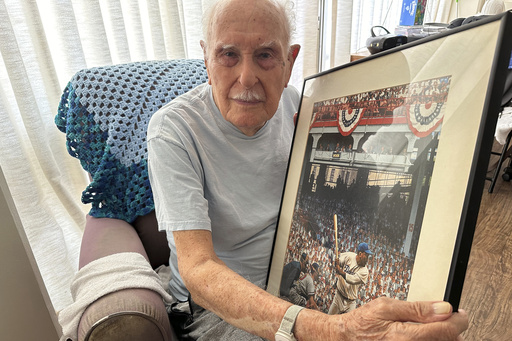Passing of Jim Becker, Esteemed Journalist
Jim Becker, a renowned journalist who traveled the globe documenting significant events, passed away on Friday in Honolulu at the age of 98 due to natural causes, as confirmed by his goddaughter, Carla Escoda Brooks.
Becker’s illustrious career included stints as an Associated Press bureau chief in multiple cities, including Manila, New Delhi, and Honolulu. He also worked as a freelance journalist covering prominent figures such as Margaret Thatcher in London. However, one of his most treasured stories was about an underdog high school football team in Hawaii that clinched a league championship while he served as a columnist for the Honolulu Star-Bulletin.
Fresh from his Army service, Becker joined the Associated Press in 1946 when he approached the organization’s New York headquarters unannounced and was hired the very next day. He had the opportunity to witness Jackie Robinson make history as the first Black player to join a Major League Baseball team, reporting from the Brooklyn Dodgers’ inaugural game in which Robinson participated.
While Becker noted that some of Robinson’s teammates had expressed their unwillingness to play alongside him by signing a petition, the crowd rallied in support of Robinson. Reflecting on that moment, Becker shared that many in Brooklyn understood prejudice, having experienced it themselves. At just 20 years old, Becker gathered quotes from Robinson during the game, capturing the emotional weight of the situation as Robinson unknowingly interacted with a teammate who had signed the petition.
Becker described Robinson’s debut as a significant moment in the fight for decency, dignity, and fair play, acknowledging the weight of those circumstances and the fact that Robinson was carrying that burden seemingly alone.
In addition to covering Major League Baseball, Becker reported on critical events during the Korean War. In 1950, he was sent to Korea, where the U.S. military was involved in defending South Korea against a North Korean invasion. He embedded with the Marines, adapting to challenging communication conditions by writing his reports on paper, which he entrusted to injured soldiers being evacuated. Becker hoped that his stories would reach a wider audience, and indeed, they reached various AP offices, including in Washington, D.C.
Later, Becker was with the 3rd Army Division when they retook Seoul, recalling the moment he crossed the Han River alongside soldiers and fellow journalists, walking through a city left deserted by enemy forces. His storytelling ability shone when he covered the Dalai Lama’s flight to India in 1959. During this time, Becker, along with rival news agencies, scrambled to deliver urgent photographs of the Tibetan leader to the world. Despite initial setbacks, Becker successfully transmitted AP’s first photo, albeit with a humorous anecdote about a mistaken identity regarding the Dalai Lama’s appearance.
In the 1960s, Becker transitioned from the Associated Press to a columnist role at the Honolulu Star-Bulletin, where he would pen what he characterized as “the most important story I ever wrote.” This piece highlighted the triumph of the Farrington High School football team from Kalihi against a more affluent rival, Kamehameha, during the 1965 league championship. Becker depicted the grit and determination of players who faced personal hardships, from struggling financially to having volunteer drivers who worked city jobs during the day.
His portrayal of the team’s journey provided a counter-narrative to the often negative media coverage of the Kalihi area, inspiring many who identified with the story’s message of resilience and hope. State Rep. Gregg Takayama, a Farrington alumnus, stated that the story resonated deeply with the community, emphasizing that anyone, regardless of their humble beginnings, could achieve greatness.
Becker is remembered fondly, as many people approached him over the years to express how meaningful his writing was to them, with some even framing his articles for display in their homes. He was preceded in death by his wife of 60 years, Betty Hanson Becker, in 2008. Although they did not have children, they became godparents to Carla Escoda Brooks and her siblings, who are among Becker’s surviving family.




